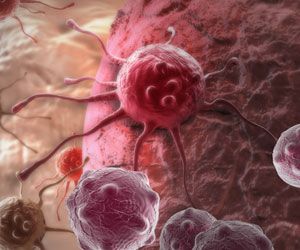Recent studies have indicated that the protein known as TRPM8 plays an important role in prostate cancer.
Recent studies have indicated that the protein known as TRPM8 plays an important role in prostate cancer: high levels of TRPM8 have been found in prostate carcinoma compared to normal prostate epithelial cells, and TRPM8 has been suggested as a specific marker and therapeutic target in prostate cancer. However, the regulation of and changes in TRPM8 during prostate cancer progression have remained unclear.
In normal prostate epithelium, cells coexist in many stages of development/differentiation – progressing from stem cells to mature luminal cells. Disrupted or dysregulated differentiation and proliferation are major causes of cancer.In a study appearing online on May 17 in advance of publication in the June print issue of the Journal of Clinical Investigation, Natalia Prevarskaya from Université des Sciences et Technologies de Lille, France, show that only mature, differentiated human prostate primary epithelial luminal cells express functional plasma membrane TRPM8 (PM-TRPM8) and that prostate cancer cells possessed higher PM-TRPM8 levels than normal cells.
However, endoplasmic reticulum TRPM8 (ER-TRPM8) retained it’s function as a calcium release channel, independent of the differentiation state of the cell, and may be an important factor in controlling the growth of prostate cancer cells.
The authors hypothesize that the constant activity of ER-TRPM8 may be the result of the expression of a truncated form of TRPM8. The authors suggest that specific inhibition of ER-TRPM8 or PM-TRPM8 may prove to be of therapeutic use in the treatment of prostate cancer, depending on the stage of the tumor.
Source-Eurekalert
SRM/B





![Prostate Specific Antigen [PSA] Prostate Specific Antigen [PSA]](https://www.medindia.net/images/common/patientinfo/120_100/prostate-specific-antigen.jpg)





